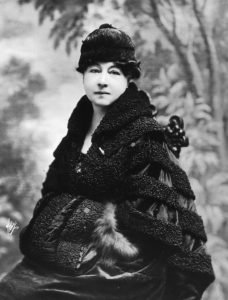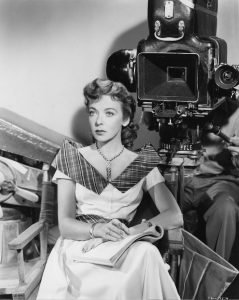Female directors have been woefully underrated in Hollywood for the longest time. But in recent years, there seems to be a rise in female directors who are gaining recognition for their work, calling back to those who paved the way before them.
As Chloé Zhao soaked up the spotlight as the first female Asian director to win best director at the 76th Golden Globe Awards, her victory is just a small step toward the vast potential that could be unlocked if female directors were given equal resources and recognition.
Issues of Female Representation at The Academy Awards
The Academy Awards have been notoriously criticized for snubbing female directors of nominations, especially last year, when female directors dominated the awards discussions but failed to receive any nominations for Best Director. In the Academy Awards’ 92-year history, only five women have ever been nominated for Best Director, and only one has ever won. Yet women have continued creating in cinema, with or without other’s recognition.
In honor of Women’s History Month, let us revisit some of the revolutionary, inspiring female directors of the past and explore those who shall lead the way in the future.
Alice Guy-Blaché
 Considered the first female film director, French pioneer filmmaker Alice Guy-Blaché was the first woman to put her name on the board. Active during the late 19th century and into the early 20th, Alice and her husband Herbert Blaché established their own studio in the United States named the Solax Company. Alice directed films while her husband managed production for the studio. She was known for experimenting with sounds, special effects, interracial casting, and colour-tinting.
Considered the first female film director, French pioneer filmmaker Alice Guy-Blaché was the first woman to put her name on the board. Active during the late 19th century and into the early 20th, Alice and her husband Herbert Blaché established their own studio in the United States named the Solax Company. Alice directed films while her husband managed production for the studio. She was known for experimenting with sounds, special effects, interracial casting, and colour-tinting.
Dorothy Arzner
 In the silent era of the early 20th century, Dorothy Arzner was the only female director to be working in Hollywood. She was one of the few pioneering women in the United States to launch a long and successful career in cinema, and remains one of the most prolific female filmmakers in Hollywood history.
In the silent era of the early 20th century, Dorothy Arzner was the only female director to be working in Hollywood. She was one of the few pioneering women in the United States to launch a long and successful career in cinema, and remains one of the most prolific female filmmakers in Hollywood history.
Arzner worked for Paramount in the 1920s, directing many films including “Sarah and Son,” “Anybody’s Woman,” and “Honor Among Lovers.” She then left to work on her own, where she collaborated with numerous renowned actresses such as Katharine Hepburn, Joan Crawford, and Lucille Ball. Arzner gave Golden Age female stars intelligent, complex roles and many have deemed her a major contributor to their later successes.
Ida Lupino
 English-born American film director and actress Ida Lupino is widely regarded as the most prominent female filmmaker of 1950s Hollywood. She is best known for when she directed “Not Wanted” in 1949 after the original director Elmer Clifton had a heart attack and was unable to finish the film. Lupino rose to the occasion yet refused directorial credit in respect to Clifton.
English-born American film director and actress Ida Lupino is widely regarded as the most prominent female filmmaker of 1950s Hollywood. She is best known for when she directed “Not Wanted” in 1949 after the original director Elmer Clifton had a heart attack and was unable to finish the film. Lupino rose to the occasion yet refused directorial credit in respect to Clifton.
She also became the first female filmmaker to direct a film noir with “The Hitch-Hiker” in 1953. Lupino is known for delving into unconventional and largely controversial topics through her films, including bigamy, out-of-wedlock pregnancy, rape, and criticisms of many traditional social institutions.
Agnès Varda
 Known as the godmother of the French New Wave, Agnès Varda had a prolific career spanning six decades. A Belgian-born French film director, Varda was acknowledged for her use of realism as she largely focused on social commentary with her own distinctive style.
Known as the godmother of the French New Wave, Agnès Varda had a prolific career spanning six decades. A Belgian-born French film director, Varda was acknowledged for her use of realism as she largely focused on social commentary with her own distinctive style.
Some of her many renowned works include “Cléo from 5 to 7,” “Vagabond,” “The Gleaners and I,” and Oscar-nominated documentary “Faces Places.” Director Martin Scorsese has described Varda as “one of the Gods of cinema.” Varda received an honorary Palme d’Or at the Cannes Film Festival and was the first ever female director to receive an Academy Honorary Award.
Kathryn Bigelow
 Kathryn Bigelow is the first and, to this date, only woman to win an Academy Award for Best Director with her 2010 film “The Hurt Locker.” Directing a war thriller that gained global acclaim, Bigelow upended notions of the types of movies women can direct.
Kathryn Bigelow is the first and, to this date, only woman to win an Academy Award for Best Director with her 2010 film “The Hurt Locker.” Directing a war thriller that gained global acclaim, Bigelow upended notions of the types of movies women can direct.
Bigelow is also known for having a wide variety in her filmography, covering genres from horror to action, sci-fi to period pieces. In addition to “The Hurt Locker,” Bigelow is known for films such as “Zero Dark Thirty,” “Point Break,” and “Detroit.”
Julie Dash

Dash’s experimental approach of a non-linear narrative was ahead of her time and received much praise from critics for its originality. Some of her other unconventional films include “Four Women,” “Illusions,” and “The Rosa Parks Story.”
Jane Campion
 Born in New Zealand, Jane Campion is best known for her 1993 film “The Piano.” Depicting a psychologically mute Scottish woman who travels to New Zealand with her daughter, the film was a critical and commercial success, winning the Palme d’Or at the Cannes film Festival, making Campion the first and only female filmmaker to receive this award.
Born in New Zealand, Jane Campion is best known for her 1993 film “The Piano.” Depicting a psychologically mute Scottish woman who travels to New Zealand with her daughter, the film was a critical and commercial success, winning the Palme d’Or at the Cannes film Festival, making Campion the first and only female filmmaker to receive this award.
Campion is also the second of five women to be nominated for Best Director in Academy Award history. Other critically acclaimed films of hers include “Bright Star,” “An Angel at My Table,” and “The Portrait of a Lady.”
Patty Jenkins
 Behind the massive box office smash “Wonder Woman” and its sequel “Wonder Woman 1984” lies Patty Jenkins, the first woman to direct a comic book tentpole movie. Jenkins first stood under the spotlight with her directorial debut “Monster,” which depicts a striking portrait of serial killer Aileen Wuornos portrayed by a virtually unrecognizable Charlize Theron, who went on to receive an Oscar for her performance.
Behind the massive box office smash “Wonder Woman” and its sequel “Wonder Woman 1984” lies Patty Jenkins, the first woman to direct a comic book tentpole movie. Jenkins first stood under the spotlight with her directorial debut “Monster,” which depicts a striking portrait of serial killer Aileen Wuornos portrayed by a virtually unrecognizable Charlize Theron, who went on to receive an Oscar for her performance.
Jenkins became the highest paid female director of all time after signing onto the “Wonder Woman” sequel as she received a major pay raise following the box office hit.
Ava DuVernay
 Ava DuVernay first gained recognition with her second feature film “Middle of Nowhere,” which won her the directing award at the 2012 Sundance Film Festival, making her the first Black woman to ever win this award.
Ava DuVernay first gained recognition with her second feature film “Middle of Nowhere,” which won her the directing award at the 2012 Sundance Film Festival, making her the first Black woman to ever win this award.
She then went on to direct the historical drama film “Selma,” which earned her a Golden Globe nomination for Best Director as well as an Academy Award nomination for Best Picture. She is the first Black female filmmaker to receive both these nominations. DuVernay’s work has made her the highest grossing Black woman director in American box office history.
Greta Gerwig
 Greta Gerwig emerged from the indie scene with her 2017 solo directorial debut “Lady Bird” and has been under the spotlight ever since. An actress turned director, Gerwig gained much critical success with “Lady Bird” and received Academy Award nominations for Best Director as well as Best Original Screenplay.
Greta Gerwig emerged from the indie scene with her 2017 solo directorial debut “Lady Bird” and has been under the spotlight ever since. An actress turned director, Gerwig gained much critical success with “Lady Bird” and received Academy Award nominations for Best Director as well as Best Original Screenplay.
She then went on to direct the 2019 film adaptation of “Little Women,” starring Saoirse Ronan, Emma Watson, Florence Pugh, and Timothée Chalamet. The film received six nominations at the 92nd Academy Awards, though Gerwig was snubbed for a Best Director nomination.
Chloé Zhao
 Last but not least, back to where we started, Chloé Zhao—the first Asian female director to win Best Director at the Golden Globe Awards. A Chinese filmmaker known primarily for her work in indie films, Zhao made her directorial debut with “Songs My Brothers Taught Me,” which she received an Indie Spirit nomination for.
Last but not least, back to where we started, Chloé Zhao—the first Asian female director to win Best Director at the Golden Globe Awards. A Chinese filmmaker known primarily for her work in indie films, Zhao made her directorial debut with “Songs My Brothers Taught Me,” which she received an Indie Spirit nomination for.
She then went on to direct “The Rider” and “Nomadland,” the latter of which earning her a Golden Globe. Venturing into mainstream blockbusters, Zhao was announced in 2018 to be the director of upcoming Marvel film “Eternals,” starring Angelina Jolie, Richard Madden, Salma Hayek, and more.


